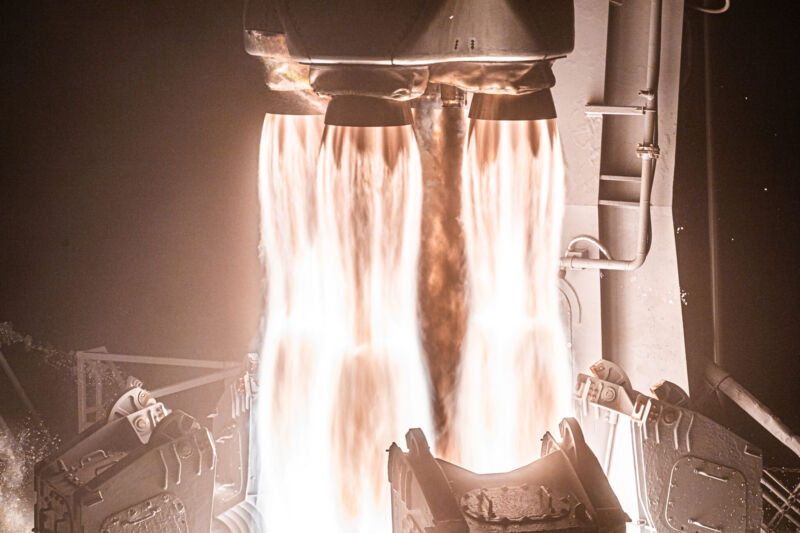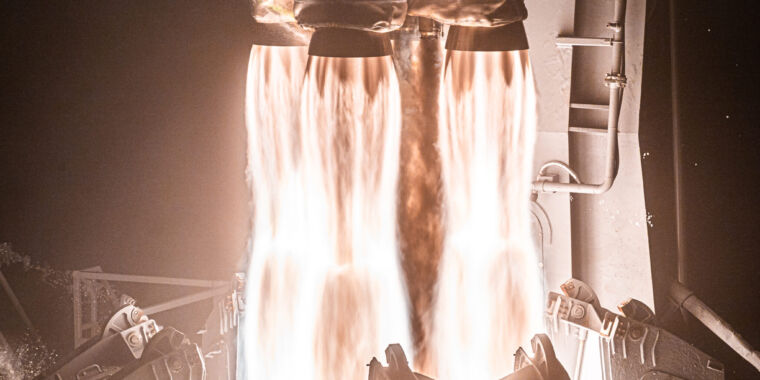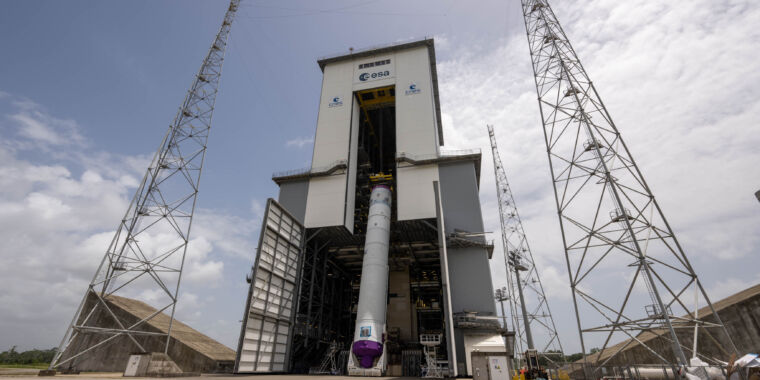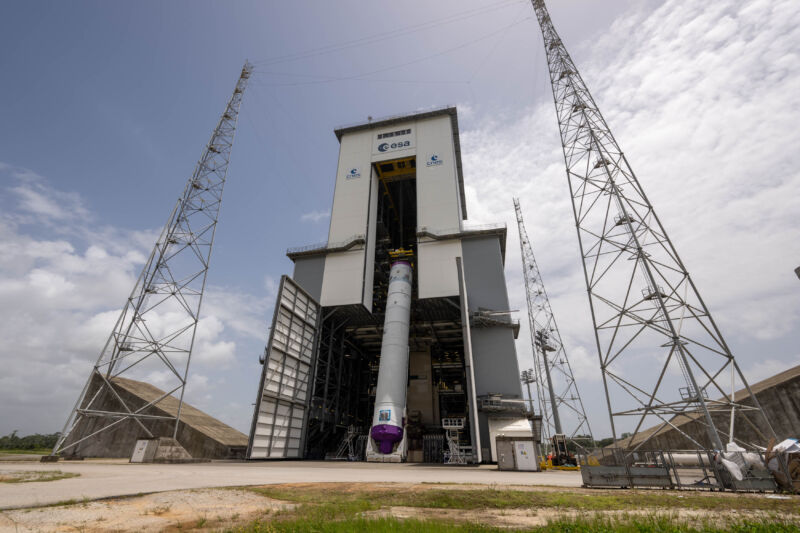Rocket Report: Firefly delivers for NASA; Polaris Dawn launching this month
No holds barred —
The all-private Polaris Dawn spacewalk mission is set for launch no earlier than July 31.

Enlarge / Four kerosene-fueled Reaver engines power Firefly’s Alpha rocket off the pad at Vandenberg Space Force Base, California.
Welcome to Edition 7.01 of the Rocket Report! We’re compiling this week’s report a day later than usual due to the Independence Day holiday. Ars is beginning its seventh year publishing this weekly roundup of rocket news, and there’s a lot of it this week despite the holiday here in the United States. Worldwide, there were 122 launches that flew into Earth orbit or beyond in the first half of 2024, up from 91 in the same period last year.
As always, we welcome reader submissions, and if you don’t want to miss an issue, please subscribe using the box below (the form will not appear on AMP-enabled versions of the site). Each report will include information on small-, medium-, and heavy-lift rockets as well as a quick look ahead at the next three launches on the calendar.

Firefly launches its fifth Alpha flight. Firefly Aerospace placed eight CubeSats into orbit on a mission funded by NASA on the first flight of the company’s Alpha rocket since an upper stage malfunction more than half a year ago, Space News reports. The two-stage Alpha rocket lifted off from Vandenberg Space Force Base in California late Wednesday, two days after an issue with ground equipment aborted liftoff just before engine ignition. The eight CubeSats come from NASA centers and universities for a range of educational, research, and technology demonstration missions. This was the fifth flight of Firefly’s Alpha rocket, capable of placing about a metric ton of payload into low-Earth orbit.
Anomaly resolution … This was the fifth flight of an Alpha rocket since 2021 and the fourth Alpha flight to achieve orbit. But the last Alpha launch in December failed to place its Lockheed Martin payload into the proper orbit due to a problem during the relighting of its second-stage engine. On this week’s launch, Alpha deployed its NASA-sponsored payloads after a single burn of the second stage, then completed a successful restart of the engine for a plane change maneuver. Engineers traced the problem on the last Alpha flight to a software error. (submitted by Ken the Bin)
Two companies added to DoD’s launch pool. Blue Origin and Stoke Space Technologies — neither of which has yet reached orbit — have been approved by the US Space Force to compete for future launches of small payloads, Breaking Defense reports. Blue Origin and Stoke Space join a roster of launch companies eligible to compete for launch task orders the Space Force puts up for bid through the Orbital Services Program-4 (OSP-4) contract. Under this contract, Space Systems Command buys launch services for payloads 400 pounds (180 kilograms) or greater, enabling launch from 12 to 24 months of the award of a task order. The OSP-4 contract has an “emphasis on small orbital launch capabilities and launch solutions for Tactically Responsive Space mission needs,” said Lt. Col. Steve Hendershot, chief of Space Systems Command’s small launch and targets division.
An even dozen … Blue Origin aims to launch its orbital-class New Glenn rocket for the first time as soon as late September, while Stoke Space aims to fly its Nova rocket on an orbital test flight next year. The addition of these two companies means there are 12 providers eligible to bid on OSP-4 task orders. The other companies are ABL Space Systems, Aevum, Astra, Firefly Aerospace, Northrop Grumman, Relativity Space, Rocket Lab, SpaceX, United Launch Alliance, and X-Bow. (submitted by Ken the Bin and brianrhurley)
The easiest way to keep up with Eric Berger’s space reporting is to sign up for his newsletter, we’ll collect his stories in your inbox.
Italian startup test-fires small rocket. Italian rocket builder Sidereus Space Dynamics has completed the first integrated system test of its EOS rocket, European Spaceflight reports. This test occurred Sunday, culminating in a firing of the rocket’s kerosene/liquid oxygen MR-5 main engine for approximately 11 seconds. The EOS rocket is a novel design, utilizing a single-stage-to-orbit architecture, with the reusable booster returning to Earth from orbit for recovery under a parafoil. The rocket stands less than 14 feet (4.2 meters) tall and will be capable of delivering about 29 pounds (13 kilograms) of payload to low-Earth orbit.
A lean operation … After it completes integrated testing on the ground, the company will conduct the first low-altitude EOS test flights. Founded in 2019, Sidereus has raised 6.6 million euros ($7.1 million) to fund the development of the EOS rocket. While this is a fraction of the funding other European launch startups like Isar Aerospace, MaiaSpace, and Orbex have attracted, the Sidereus’s CEO, Mattia Barbarossa, has previously stated that the company intends to “reshape spaceflight in a fraction of the time and with limited resources.” (submitted by EllPeaTea and Ken the Bin)
Rocket Report: Firefly delivers for NASA; Polaris Dawn launching this month Read More »


